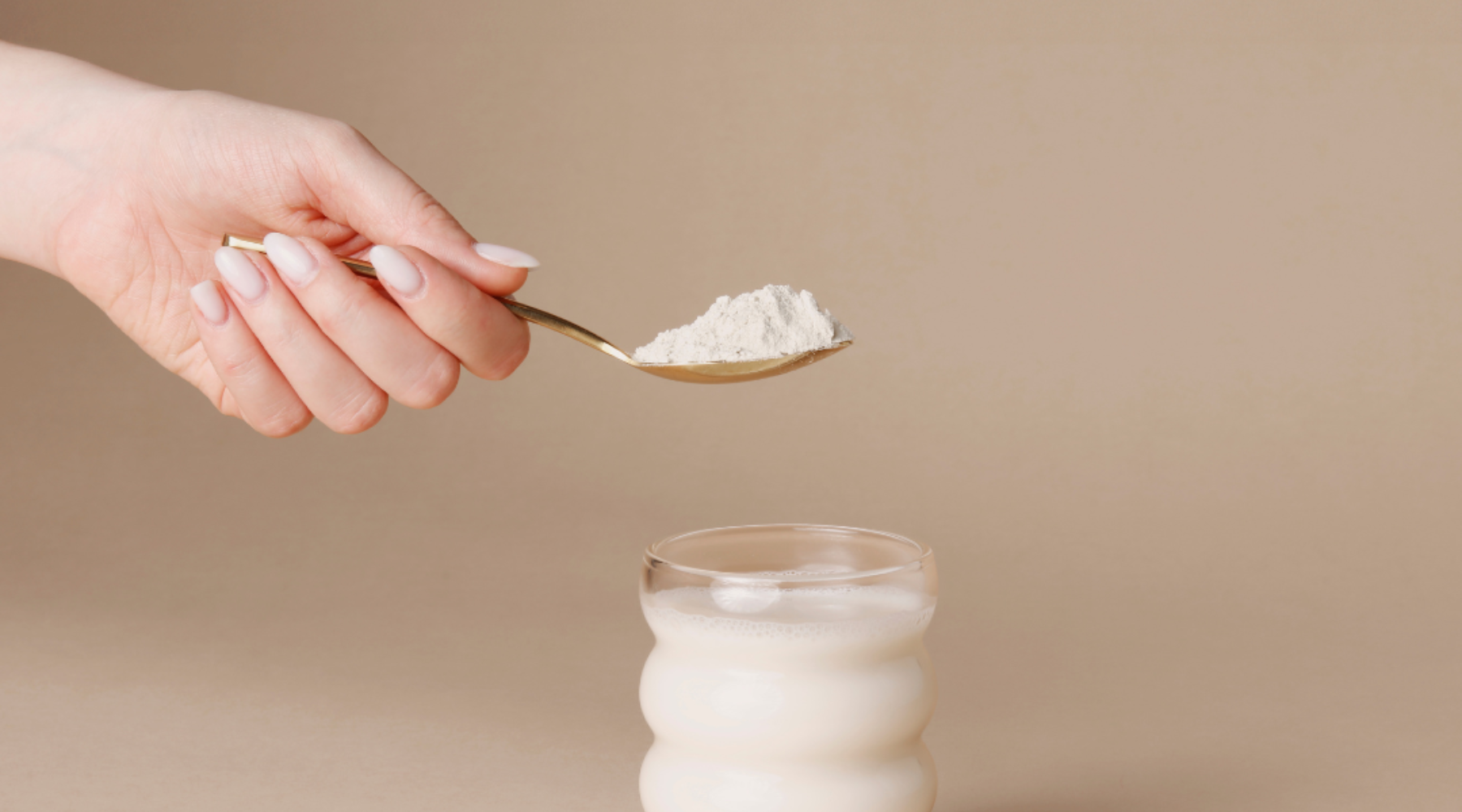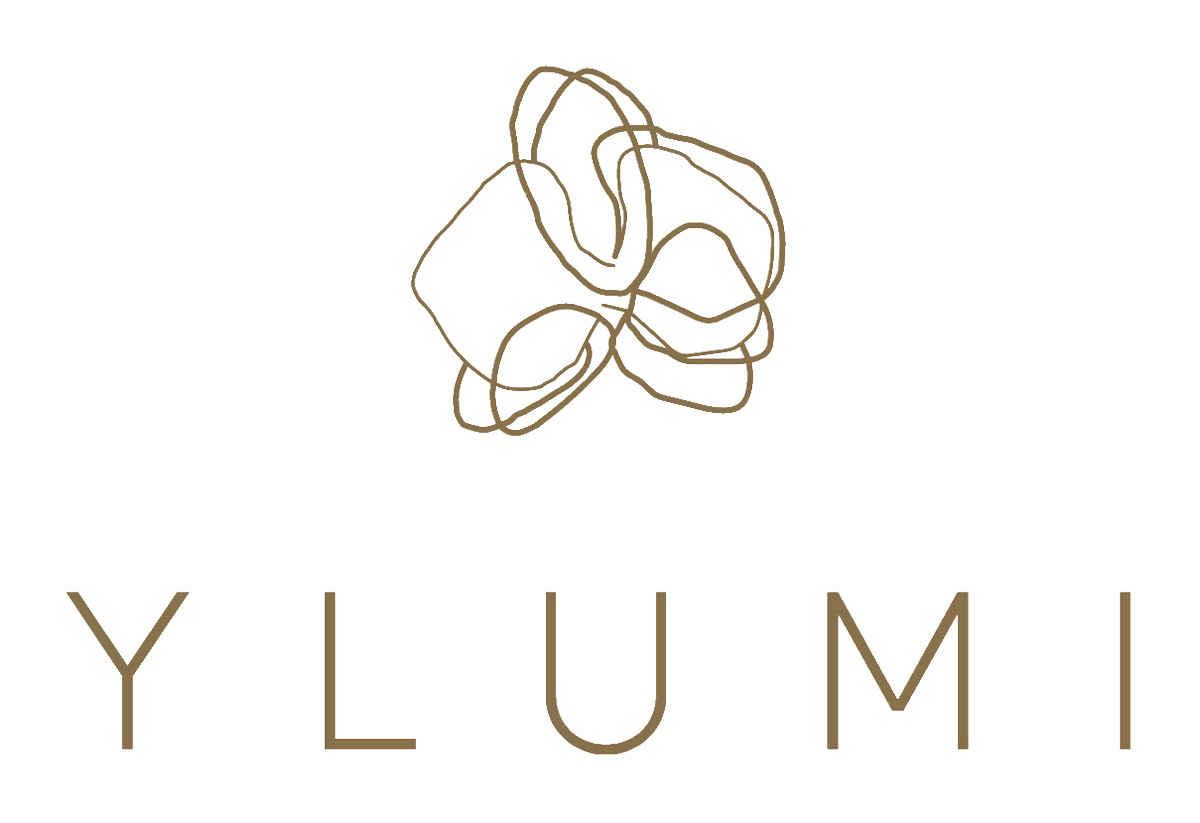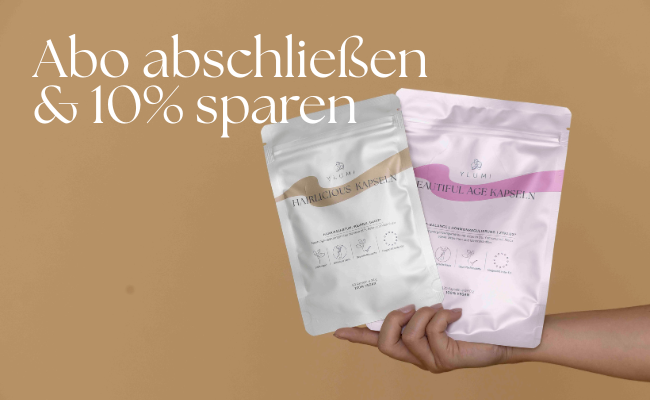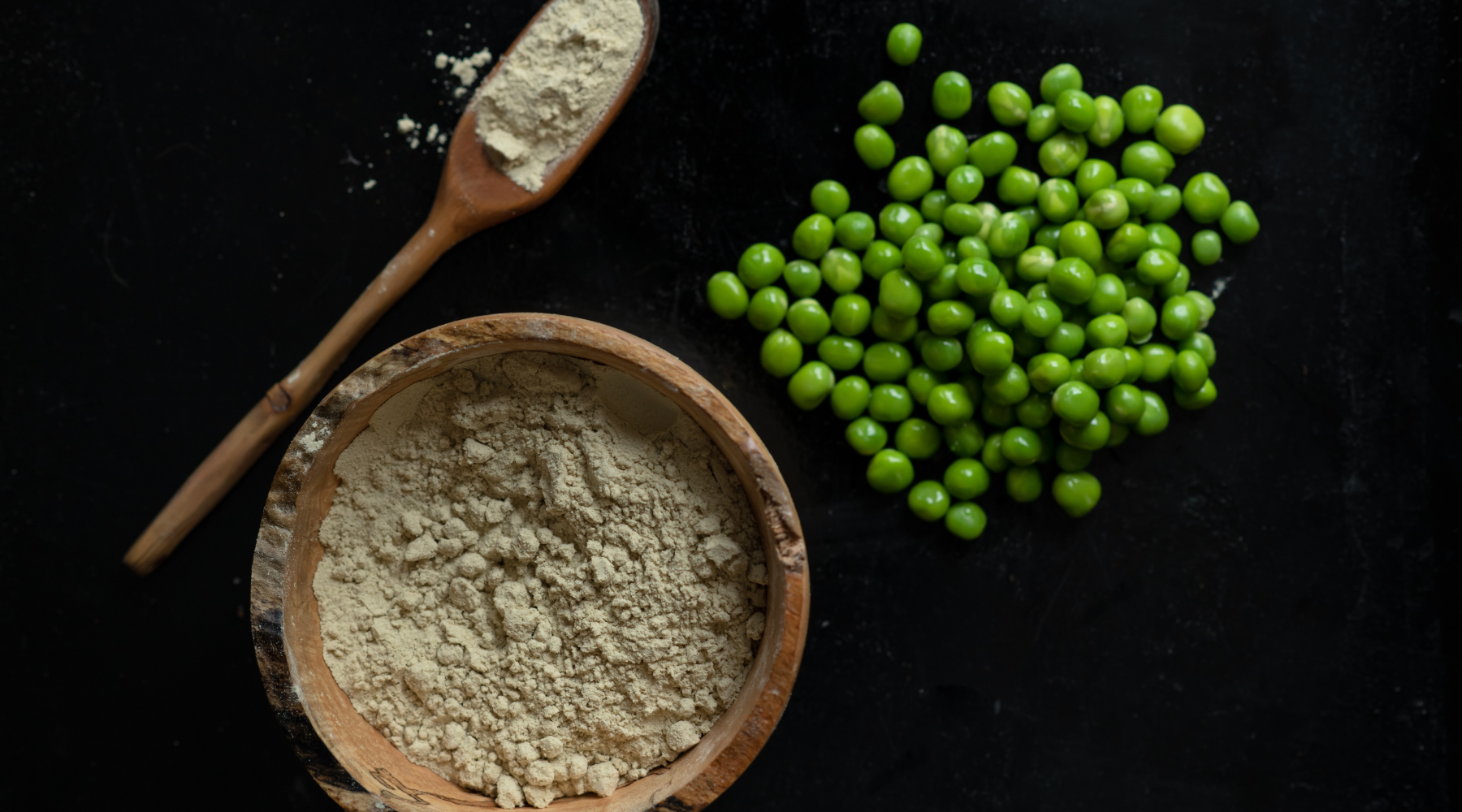
Collagen powder: Take it directly or boost the body's own collagen production?
Collagen has become one of the most popular dietary supplements in recent years. Whether as a powder in a smoothie, as an ingredient in beauty drinks, or in capsules, many people rely on the effects of this important structural protein to support skin, hair, joints, and connective tissue. But the question arises: Is it more beneficial to take collagen directly, or is it better to use ingredients that stimulate the body's own collagen production? Let's take a closer look at both approaches.
What is collagen?
Collagen is a protein found in large quantities in the human body. It is an essential component of skin, tendons, ligaments, cartilage, and bones. However, with age, natural collagen production declines—a process that contributes to skin aging, reduced elasticity, and joint problems.
Take collagen directly – benefits and effects
Collagen supplements usually consist of hydrolyzed collagen (collagen peptides), which is more easily absorbed by the body. Studies show the following benefits from regular consumption of collagen powder:
-
Can improve skin elasticity
-
Increases moisture in the skin
-
Can reduce wrinkle formation
-
Can support joint health
One advantage of taking collagen directly is that collagen products are specially formulated for targeted absorption. Many people report visible improvements within a few weeks.
Strengthen the body's own collagen production
An alternative to direct ingestion is to provide the body with the nutrients it needs for collagen production. These include:
-
Vitamin C Essential for the synthesis of collagen.
-
The amino acids glycine, proline and lysine are the basic building blocks of collagen.
-
Zinc and copper These trace elements support collagen production.
-
Silicon strengthens the structure of connective tissue and skin.
Advantages of this approach include:
-
Holistic support for the body Instead of just supplementing collagen, natural collagen production is promoted, which can have more lasting effects.
-
Broader Effect The nutrients that boost collagen production often have other health benefits—such as strengthening the immune system, supporting wound healing, and improving the overall appearance of the skin.
-
Natural Approach Many people prefer to strengthen the body's natural processes rather than directly supplementing.
Our Inner Glow Superstar
VANILLA GLOW PROTEIN promotes the body's own collagen production through a carefully balanced combination of plant-based ingredients:
-
Plant proteins With 75.9 g of protein per 100 g from rice, pea and hemp protein, it provides essential amino acids such as glycine and proline, which serve as important building blocks for collagen synthesis.
-
Vegan hyaluronic acid supports skin moisture and elasticity, which indirectly stabilizes the collagen structure.
-
Bamboo extract Rich in silicon, a mineral that supports collagen formation and contributes to the strength of skin, hair and nails.
-
Power greens like matcha and spirulina provide antioxidants and nutrients that promote skin health and reduce oxidative stress, which can impair collagen structure.
Through these ingredients, the VANILLA GLOW PROTEIN provides comprehensive support for natural collagen production and thus contributes to the health of skin, hair and nails. It can be easily integrated into smoothies, shakes or meals and offers a delicious and practical way to support the body holistically.
Foods to promote collagen formation
Foods rich in vitamin C
Vitamin C is essential because it stimulates the production of collagen:
- Citrus fruits – oranges, lemons, limes, grapefruits
- Berries – strawberries, raspberries, blueberries, acerola cherries
- Peppers – especially red and yellow peppers
- Kiwi – Very rich in vitamin C and antioxidants
- Pineapple – Provides vitamin C and bromelain to support digestion
- Green leafy vegetables – spinach, kale, arugula and parsley
- Broccoli – Contains vitamin C and antioxidants.
Foods containing sulfur
Sulphur compounds promote collagen synthesis
- Garlic – Rich in sulfur and supports the formation of collagen.
- Onions – A good source of sulfur compounds.
- Types of cabbage – white cabbage, kale, Brussels sprouts, savoy cabbage.
Foods containing zinc
Zinc supports collagen production
- Nuts and seeds – pumpkin seeds, chia seeds, sunflower seeds, sesame.
- Whole grain products – oatmeal, quinoa, buckwheat.
- Legumes – lentils, chickpeas, black beans.
Anthocyanins and antioxidants
Protect collagen from free radicals
- Cherries – Rich in anthocyanins.
- Red grapes – Protect collagen with resveratrol and anthocyanins.
- Beetroot – Provides antioxidants to boost collagen.
Omega-3 fatty acids
Protect collagen from damage and promote skin elasticity
- Walnuts – A plant-based source of omega-3.
- Flaxseeds – Contain alpha-linolenic acid (ALA).
- Chia seeds – rich in omega-3 fatty acids.
- Hemp seeds – Another plant-based source of Omega-3.
Vitamin A-rich foods
Supports cell renewal and collagen production
- Sweet potatoes – Rich in beta-carotene, a precursor to vitamin A.
- Carrots – Provides beta-carotene.
- Mango – A good source of vitamin A.
Foods containing copper
Copper supports the enzymes that form collagen
- Dark chocolate (vegan) – Contains copper and antioxidants
- Cashews – A plant-based source of copper.
- Sunflower seeds – Rich in copper and vitamin E.
Collagen-stabilizing foods
- Avocado – Provides vitamin E and healthy fats to support skin health.
- Olive oil – Rich in antioxidants and healthy fats.
- Tomatoes – Contain lycopene, which stabilizes collagen.
Protein-rich, plant-based foods
Amino acids such as glycine and proline are important for collagen formation
- Legumes – Beans, lentils and peas provide plant-based protein.
- Tempeh and tofu – good sources of protein from soy.
A varied diet that includes these foods can optimally promote collagen production.
Direct intake vs. natural collagen production: Which is better?
Both approaches have their advantages and disadvantages, and the choice depends on individual goals and needs.
-
Direct intake is useful when quick results are desired or for specific problems such as joint pain or highly visible skin aging.
-
Natural collagen production: This approach is suitable for anyone seeking sustainable, long-term body strengthening. Promoting natural collagen production contributes to holistic health and also supports other bodily functions. An excellent product that supports this approach is our VANILLA GLOW PROTEIN . This plant-based protein powder combines valuable ingredients like vitamin C and other body-boosting nutrients that optimally stimulate natural collagen production.
Combination of both approaches
Can't decide? Simply combine both methods. A balanced diet forms the basis, while collagen-promoting dietary supplements or similar dietary supplements can be used as a supplement. This is particularly effective for replenishing the body's collagen reserves while simultaneously stimulating natural production.
Conclusion
Whether direct collagen intake or strengthening natural collagen production, both approaches offer benefits for skin, joints, and connective tissue. Those seeking quick results should opt for collagen powder, while a long-term nutritional strategy supports natural processes. A combination of both options can offer the greatest benefit and contribute to holistic health. VANILLA GLOW PROTEIN is an ideal choice to promote natural collagen production and provide the body with valuable nutrients.






